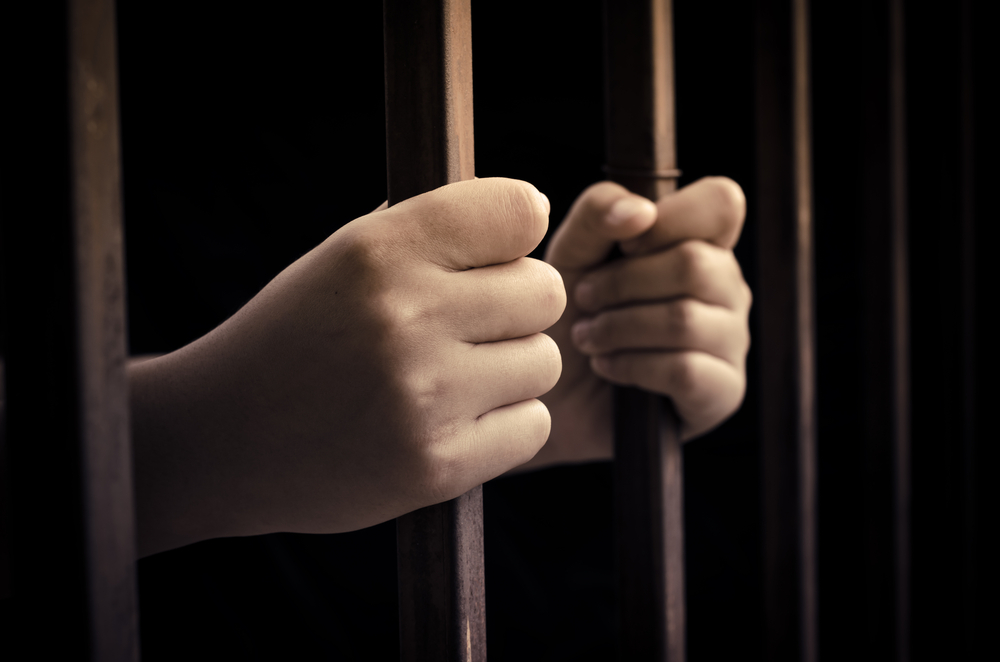by Melissa Koenig
 Prison reform is having a legislative moment—by the end of June, two bills aiming to reform the prison system were introduced into Congress: the CORRECTIONS Act in February and the Safe, Accountable, Fair and Effective Justice Act (SAFE Justice) in June. Jewish organizations that work with the prison population and focus on prison reform are trumpeting these two bills as a step in the right direction.
Prison reform is having a legislative moment—by the end of June, two bills aiming to reform the prison system were introduced into Congress: the CORRECTIONS Act in February and the Safe, Accountable, Fair and Effective Justice Act (SAFE Justice) in June. Jewish organizations that work with the prison population and focus on prison reform are trumpeting these two bills as a step in the right direction.

Organizations such as Uri L’Tzedek, the Aleph Institute and Beit T’Shuvah believe that imprisonment goes against Jewish law. The Torah, they argue, never mentions imprisonment as a form of punishment. As Rabbi Shmuly Yanklowitz, the founder and president of Orthodox justice movement Uri L’Tzedek, says, “Prison is more harsh than any punishment the Torah would prescribe.”
When prison is mentioned in the Torah, it is used as a holding facility until a judge can decide a felon’s punishment, never as a form of punishment itself. Reaching Out, a Lubavitch organization that works with Jewish prisoners, offers an explanation for this system on their website: “If you lock a person behind bars, you restrict him from doing his duty [to God]. You deny him the opportunity of fulfilling his mission; you remove his reason for existence.”
Instead, the Torah offers alternatives to imprisonment such as eved ivri, a system of servitude. A Jew who has “committed a civil wrong” and who cannot pay back the amount he owes must serve the person whom they have wronged for six years to work off the debt. If the Jew gets married prior to six years of servitude, he is allowed to go free earlier. If he does not marry, he can go free after the six years of servitude. Yanklowitz believes this is a better alternative to imprisonment. He says, “There are many cases where it helps no one to give someone a prison sentence. Rather one should have a useful way to contribute back to compensate for the harm [he] causes.” Yanklowitz also says that he would not qualify eved ivri as servitude, but rather a system of community service. Borovitz agrees, adding, “Along with the servitude must come deep introspection and learning. The eved ivri has to learn what his or her triggers to do wrong are and how to have different responses to these triggers.”
Another Jewish alternative to incarceration is the ir ha’miklat, “City of Refuge,” in which an unintentional murderer lives in a protective community that operates like a normal city. This is helpful, according to Yanklowitz, because prisoners are kept away from general society, but still live a normal life. This would ensure an easier transition into the regular society once the prisoner leaves the City of Refuge.
In a society with incarceration as a form of punishment, these Jewish organizations believe that the Torah advocates helping someone re-integrate into society no matter what he or she has done. Rabbi Moishe Mayer Vogel, the executive director of the Aleph Institute believes that Jewish law states that Jews must accept former prisoners back into society so that they may be a part of the World to Come. Therefore, the Aleph Institute seeks to provide programs and services to inmates so that they do not wind up back in prison. “By providing these tools, the men can become productive members of society,” says Vogel.
Mark Borovitz, the CEO and head rabbi at Beit T’Shuvah, a Jewish treatment facility that helps people with drug, alcohol, sex and gambling addictions, believes that prison reform is a Jewish issue because it affects real people, whom the Torah teaches Jews to care for. “We have to see the people who go to prison as humans,” he says. “In our Torah, we don’t cut people off because they’ve done wrong, we bring them back to the community so they can do teshuvah [repentance].”
Still, Yanklowitz and Borovitz do not think the Jewish community is doing enough to fight for those who are in prison. They say that the Jewish community is largely ignoring those who are in prison. “There’s very few Jews who are showing leadership in this. When I’ve engaged in activism for this, it’s mainly been interfaith,” says Yanklowitz.
The Jews that have been active in the fight for prison reform agree that the Torah says one must accept the society he or she is a part of. That does not, however, mean that he or she should not fight for what is moral. According to Yanklowitz, Jews must examine who is going into prison and how they are being treated once they are there. He says that the Torah would never allow people to go to prison on “petty drug crimes” nor would it condone the way in which these prisoners are treated. “We can trust the courts, but not the prison system,” says Yanklowitz.


Big steps in the right direction. prisons are life-destroyers. Too bad that the text refers to only Jewish prisoners. As for first two sentences in last paragraph, surely right, unless “moral” is reduced to biblical interpretation.
Richard Rothschild